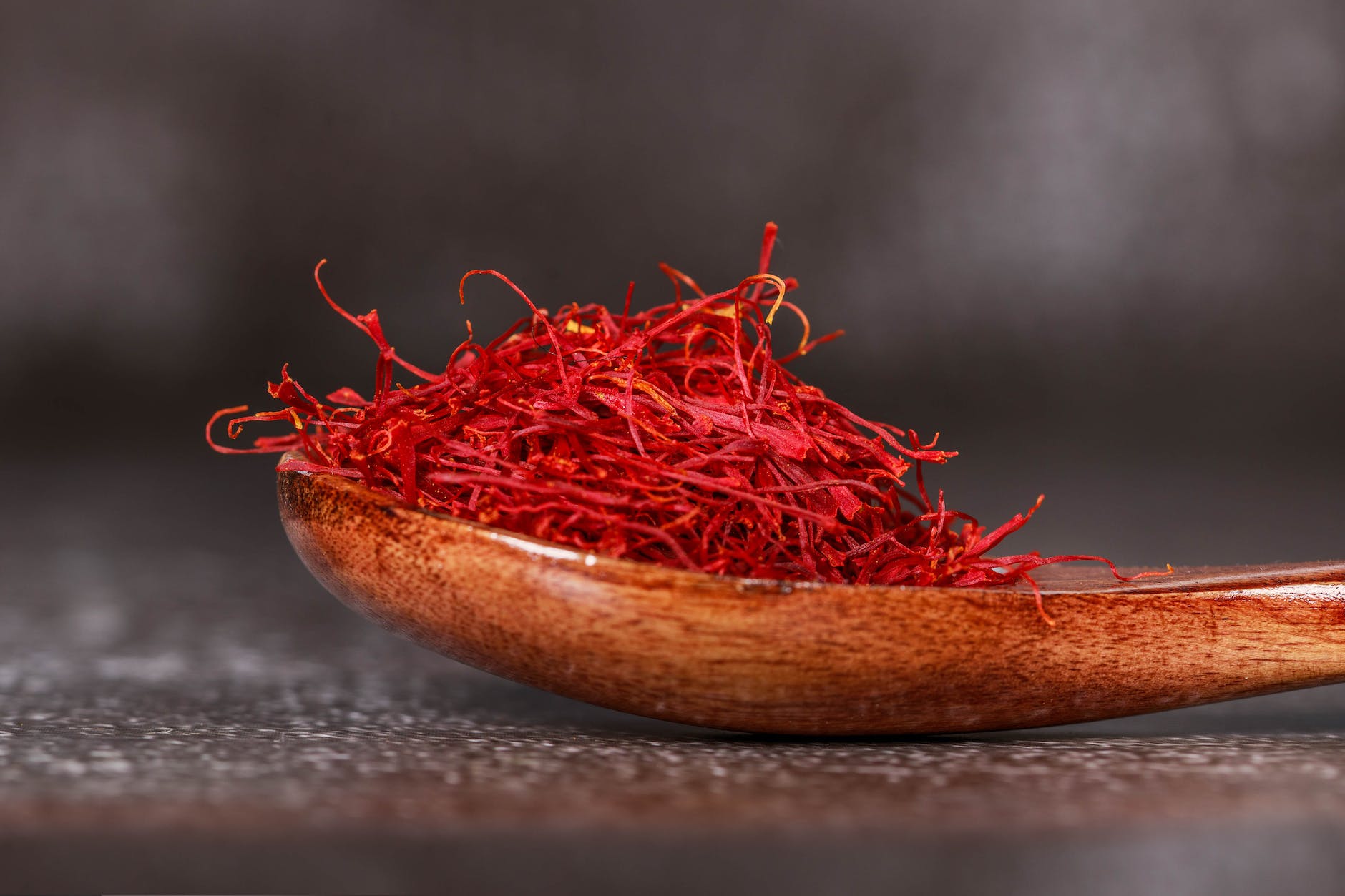
Saffron, often referred to as the “golden spice,” has been used for centuries due to its unique flavor, vibrant color, and a multitude of health benefits. When infused in water, this precious spice yields a golden elixir that is not only a delight to the senses but also a boon to health. This post will delve into the benefits of saffron water, how to prepare it, and answer some frequently asked questions about this potent brew.
What is Saffron Water?
Saffron water is a simple yet potent concoction made by infusing saffron threads in water. The water absorbs the active compounds from the saffron threads, resulting in a golden-hued liquid with a unique aroma and taste. Saffron water can be consumed on its own or used as a base for teas, broths, and various culinary dishes.
How to Make Saffron Water
Making saffron water is a straightforward process. Here’s a simple recipe:
- Take a few strands of saffron (about a pinch) and place them in a cup.
- Pour hot (but not boiling) water over the saffron threads.
- Allow the mixture to steep for at least 5-10 minutes. The water will gradually turn a golden yellow color.
- Your saffron water is ready to drink. You can consume it as is or add it to other beverages or dishes.
How to Make Saffron Water for Weight Loss
Saffron water can be a great addition to a weight loss regimen. The active compounds in saffron can help suppress appetite and reduce cravings. Here’s how to prepare saffron water specifically for weight loss:
- Follow the steps above to prepare saffron water.
- Add a squeeze of lemon or a teaspoon of honey to enhance the flavor and boost the weight loss properties. Both lemon and honey are known for their weight loss benefits.
- Drink this concoction first thing in the morning on an empty stomach.
Health Benefits of Saffron Water
Saffron water is packed with numerous health benefits, thanks to the rich array of antioxidants and other active compounds present in saffron. Here are some key benefits:
- Powerful Antioxidant: Saffron is rich in antioxidants, which help protect your cells against oxidative stress and free radicals.
- Mood Enhancer: Studies have shown that saffron water can improve mood, memory, and learning ability. It’s even been used as a natural remedy for depression.
- Respiratory Relief: Saffron water can provide relief from cough, sore throat, and asthma symptoms. It aids in loosening phlegm and reducing inflammation.
- Weight Loss Aid: The active compounds in saffron can suppress appetite and reduce cravings, aiding in weight loss.
- Brain Health: The antioxidants in saffron may be beneficial for your brain and nervous system, protecting brain cells against oxidative stress.
Can I Drink Saffron Water Every Day?
Yes, you can drink saffron water every day. However, due to its potency, a small amount of saffron goes a long way. A few strands (about a pinch) are enough for one cup of saffron water. As with any supplement, it’s always a good idea to consult with a healthcare provider before making any significant changes to your diet or health regimen.
Saffron Water Recipe
Here’s a simple saffron water recipe that you can prepare at home:
Ingredients:
- A pinch of saffron threads
- 1 cup of hot water
- Honey or lemon (optional)
Instructions:
- Place the saffron threads in a cup.
- Pour hot water over the saffron and let it steep for 5-10 minutes.
- Once the water turns a golden color, your saffron water is ready.
- You can add honey or lemon for added flavor and health benefits.
Enjoy the unique aroma and taste of saffron water while reaping its health benefits!
Saffron Water for PCOS
Polycystic Ovary Syndrome (PCOS) is a common hormonal disorder that affects women of reproductive age. Some studies suggest that saffron may help manage symptoms of PCOS due to its antioxidant and anti-inflammatory properties. Drinking saffron water may help regulate menstrual cycles and manage mood swings often associated with PCOS. However, more research is needed in this area, and it’s always best to consult with a healthcare provider for personalized advice.
Saffron Infused Water
Saffron infused water is essentially the same as saffron water. It’s prepared by steeping saffron threads in hot water, allowing the water to absorb the beneficial compounds from the saffron. This infusion can be consumed as a drink or used in cooking to add a unique flavor and health benefits to your dishes.
Saffron Water for Skin
Saffron is rich in antioxidants, which can help protect your skin from oxidative stress and environmental damage. Drinking saffron water or applying it topically may help improve your skin’s complexion, reduce pigmentation, and promote a healthy glow. It’s also believed to have anti-inflammatory properties that can soothe irritated skin.
Saffron Water for Cooking
Saffron water can be used in a variety of dishes to add a unique flavor and beautiful golden color. It’s commonly used in Middle Eastern, Mediterranean, and Indian cuisines in dishes like paella, risotto, biryani, and various stews and sauces. To use saffron water in cooking, simply replace some or all of the regular water in your recipe with saffron water.
Saffron Water for Hair Growth
While there’s limited scientific evidence to support the use of saffron for hair growth, some people believe that the antioxidant and anti-inflammatory properties of saffron can promote a healthy scalp and hair. You can try massaging saffron water into your scalp or rinsing your hair with it to see if it benefits your hair health.
Saffron Water for Weight Loss
As mentioned earlier, saffron can help suppress appetite and reduce cravings, which can aid in weight loss. Drinking saffron water, especially when combined with a healthy diet and regular exercise, may support your weight loss efforts.
Drinking Saffron Water on an Empty Stomach
Drinking saffron water on an empty stomach can help maximize the absorption of its beneficial compounds. Some people find that it helps kickstart their metabolism for the day and supports digestion. However, if you have a sensitive stomach, it may be better to consume saffron water with or after meals.
Saffron Water for Irregular Periods and Periods
Saffron has been used in traditional medicine to help regulate menstrual cycles. Its potential anti-inflammatory and antispasmodic properties may help alleviate menstrual pain and regulate periods. However, more research is needed in this area, and it’s always best to consult with a healthcare provider for personalized advice.
Saffron Lemon Water
Adding lemon to your saffron water not only enhances the flavor but also adds additional health benefits. Lemon is rich in vitamin C and other antioxidants, and it can aid digestion and boost your immune system. To make saffron lemon water, simply add a squeeze of fresh lemon juice to your prepared saffron water.
Saffron Water for Skin Whitening
While saffron is often touted for its potential skin-lightening properties, it’s important to note that everyone’s skin is unique, and what works for one person may not work for another. Saffron’s antioxidant properties may help brighten the skin and reduce pigmentation, but it’s not a substitute for protecting your skin from the sun and maintaining a healthy skincare routine. Always patch test any new topical treatment to ensure it doesn’t irritate your skin.
Frequently Asked Questions about Saffron Water
1. What is the Benefit of Drinking Saffron Water for PCOS?
Polycystic Ovary Syndrome (PCOS) is a hormonal disorder that affects women of reproductive age. Saffron water, rich in antioxidant and anti-inflammatory properties, may help manage symptoms of PCOS. It could potentially help regulate menstrual cycles and manage mood swings often associated with PCOS. However, more research is needed in this area to confirm these benefits.
2. How is Saffron Infused Water Prepared?
Saffron infused water is a simple yet potent concoction. It’s prepared by steeping saffron threads in hot water, allowing the water to absorb the beneficial compounds from the saffron. This infusion can be consumed as a drink or used in various culinary dishes.
3. How Does Saffron Water Benefit the Skin?
Saffron is rich in antioxidants, which can help protect your skin from oxidative stress and environmental damage. Drinking saffron water or applying it topically may help improve your skin’s complexion, reduce pigmentation, and promote a healthy glow. It’s also believed to have anti-inflammatory properties that can soothe irritated skin.
4. How Can I Use Saffron Water in Cooking?
Saffron water can be used in a variety of dishes to add a unique flavor and beautiful golden color. It’s commonly used in Middle Eastern, Mediterranean, and Indian cuisines in dishes like paella, risotto, biryani, and various stews and sauces. To use saffron water in cooking, simply replace some or all of the regular water in your recipe with saffron water.
5. Can Saffron Water Promote Hair Growth?
While there’s limited scientific evidence to support the use of saffron for hair growth, some people believe that the antioxidant and anti-inflammatory properties of saffron can promote a healthy scalp and hair. You can try massaging saffron water into your scalp or rinsing your hair with it to see if it benefits your hair health.
6. How Does Saffron Water Aid in Weight Loss?
Saffron can help suppress appetite and reduce cravings, which can aid in weight loss. Drinking saffron water, especially when combined with a healthy diet and regular exercise, may support your weight loss efforts.
7. What are the Benefits of Drinking Saffron Water on an Empty Stomach?
Drinking saffron water on an empty stomach can help maximize the absorption of its beneficial compounds. Some people find that it helps kickstart their metabolism for the day and supports digestion. However, if you have a sensitive stomach, it may be better to consume saffron water with or after meals.
8. Can Saffron Water Help Regulate Periods?
Saffron has been used in traditional medicine to help regulate menstrual cycles. Its potential anti-inflammatory and antispasmodic properties may help alleviate menstrual pain and regulate periods. However, more research is needed in this area, and it’s always best to consult with a healthcare provider for personalized advice.
9. What are the Benefits of Saffron Lemon Water?
Adding lemon to your saffron water not only enhances the flavor but also adds additional health benefits. Lemon is rich in vitamin C and other antioxidants, and it can aid digestion and boost your immune system. To make saffron lemon water, simply add a squeeze of fresh lemon juice to your prepared saffron water.
10. Can Saffron Water be Used for Skin Whitening?
While saffron is often touted for its potential skin-lightening properties, it’s important to note that everyone’s skin is unique, and what works for one person may not work for another. Saffron’s antioxidant properties may help brighten the skin and reduce pigmentation, but it’s not a substitute for protecting your skin from the sun and maintaining a healthy skincare routine. Always patch test any new topical treatment to ensure it doesn’t irritate your skin.
Conclusion
Saffron water is a potent health elixir that offers a multitude of benefits. From acting as a powerful antioxidant to aiding in weight loss, this golden brew is a simple and effective way to boost your health. Whether you choose to drink it on its own or incorporate it into your dishes, saffron water is a delightful addition to your health regimen.
Blog Tags
Saffron, Saffron Water, Health Benefits, Weight Loss, Antioxidant, Mood Enhancer, Respiratory Relief, Brain Health, Saffron Water Recipe, Healthy Drinks, Natural Remedies, Wellness, Nutrition, Dietary Supplements, Herbal Tea, Saffron Benefits, Golden Spice, Saffron Infusion, Saffron Threads, Saffron Elixir, Health Elixir, Health Regimen, Healthy Lifestyle.













